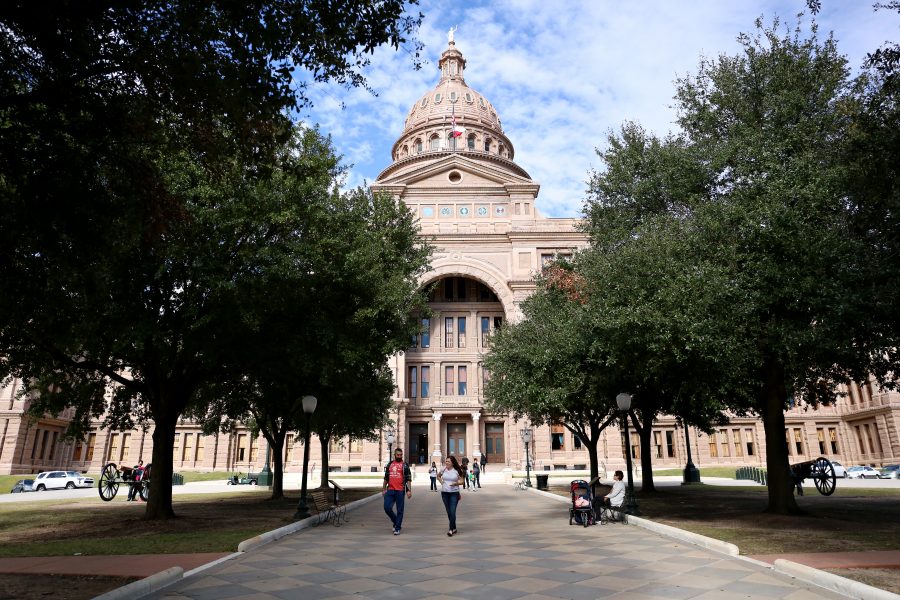Money will be on the minds of both the University and the UT System during the 2015 legislative session.
Barry McBee, System vice chancellor of governmental relations, said the System will push legislators for additional funding to support institutional growth and programs, particularly for veterans. Meanwhile, UT-Austin President William Powers Jr. said the University hopes to receive money to provide for faculty salary increases.
Powers said the University has been unable to raise faculty salaries for the past few years because of limited funding.
“We’re falling behind at a competitive notion,” Powers said. “I think we need to put some resources into that. We need more sections of some classes. It’s been tough managing with flat and actually decreased — even in nominal dollars — budgets.”
According to Powers, UT takes a $40 million hit every year from inflation and another $40 million hit from building and equipment depreciation.
“Buildings get old and they have to constantly be renovated with the air conditioning and heating and infrastructure,” Powers said. “We’ve had some deferred maintenance that we’ve got to get done.”
At the Board of Regents meeting in November, McBee said the System intends to make receiving state support for the construction of new institutional buildings its top priority.
“The principal reason why we need state support is because we haven’t had it in almost a decade,” McBee said. “We’ve added 26,000 students within The University of Texas System since then. We are asking the legislature for comprehensive and statewide support to develop new buildings for the 21st century and to replace older buildings.”
Along with funding for construction, McBee said the System would be seeking state support for paying the cost of Hazlewood benefits for veterans. The Hazlewood Act, first adopted in Texas in 1929, grants veterans an exemption from paying tuition at public universities. In 2009, veterans’ family members were also made eligible to receive benefits.
According to McBee, System institutions forwent about $42 million in tuition revenue during the 2013-2014 fiscal year because of the Hazlewood Act. He said this amount is expected to increase as more people leave military service.
“The UT System has always been in support of [the act], but it is an increasingly expensive benefit,” McBee said. “And it is one where the legislature simply exempts those students from paying tuition and it does not provide, other than in a nominal amount, an offset of other funding. We will ask the legislature to fully fund the Hazlewood benefit.”
McBee said another priority during the 2015 legislative session is to receive state support for institutional research and funding to increase the health care workforce in Texas.
“I think it’s a pretty comprehensive list,” Chairman Paul Foster said during the regents’ meeting. “Obviously, it’s a fluid list and one that changes throughout the legislative session as our priorities become more apparent to us.”
In an interview Friday, McBee said, although the legislature should have an extra amount of money to spend because of a state surplus, he is unsure what amount of funding will be allocated toward higher education.
“We’ll get a picture of that when the comptroller provides an updated revenue estimate early in the session in January of 2015,” McBee said. “We would certainly hope that legislators see the value of an estimate in higher education as part of the state’s critical infrastructure and would continue to keep the economy strong, given the state surplus.”


















